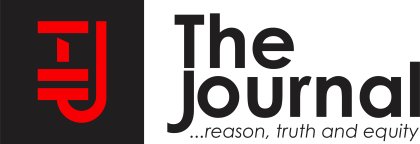
The total amount of foreign exchange (FX) that streamed into the Nigerian economy skyrocketed by 64% to $30.18billion in the third quarter (Q3) of 2021 compared to the $18.4billion recorded in the previous quarter.
This is about the data of the statistical bulletin for Q3 2021, from the Central Bank of Nigeria (CBN).
The FX inflow of $42.5billion in Q3 of 2021 is one of the highest quarterly inflow recorded by Nigeria since the first quarter of 2020, the current inflow is roughly equivalent to the inflow at the third quarter of 2019; before the effect of the covid-19 pandemic.
The rise in inflow is mostly due to a 158% q/q (141percent y/y) increase in inflow through the CBN to $16.8billion, said analysts at FBNQuest in a new note on Friday.
Relatively, on a year-on-year basis, the inflow increased by 14 percent compared to $26.47billion recorded in the corresponding period of 2020.
During the period of review, the Nigerian government secured two external loans, which summed up to $7.34billion, representing $3.34billion IMF Special Drawing Rights (SDRs) in August as well as proceeds of $4billion from Nigeria’s Eurobond issue in September 2021 respectively.
Inflows through the Central Bank of Nigeria stood at $16.83 billion, which accounts for 56% of the total FX inflow in the economy, at review.
Also, the inflow of $16.83billion through the CBN in Q3 2021 is 158% as stated earlier, and 141% higher than $6.51billion and $6.98billion recorded in Q2 2021 and Q3 2020 respectively.
Inflow from autonomous sources recorded 44.2% of total inflow in the value of $13.35billion. In contrast to the previous quarter, it increased by 12% compared to $11.89billion recorded in Q2 2021.
On the other hand, inflows through autonomous sources, declined by 32% compared to $19.49billion recorded in the corresponding period of the previous year.
Note that, the autonomous sources of FX include foreign exchange received from the exportation of non-oil items, revenue inflows and Invisibles while the indivisibles include capital importations, remittances, and other OTC purchases.
More so, the increase in FX inflow from the CBN can be traced to the significant rise recorded inflows through the Treasury Single Account (TSA) and Third Part Funds in September 2021.
It was recorded that, funds through the TSA and Third Party Funds grew by over 600% to $2.47billion in September of the review year, while a sum of $3.2billion was recorded in the third quarter of 2021, accounting for 11% of the total inflows recorded in the quarter under review.
Continuously, the Central Bank of Nigeria has intervened in the official forex market, its various interventions and allocation of FX through its windows, fell by c.10% q/q to $4.5billion. The loss can be attributed to CBN’s ban of transactions of FX to Bureau de Change (BDC) operators in the country last year.
The sales of FX to the BDC segment plummeted to $445million, reflecting FX sales for July when the bank banned the sales to BDC. Sales for the Secondary Market Intervention Sales (SMIS) segment improved to $2 .1billion from $1.5billion in Q2.
CBN, after a meeting with the Monetary Policy Committee (MPC) on the 27th July, 2021, where the banning of FX sales to BDC was discussed, due to forex infractions; CBN directed banks to sell dollars for the legitimate needs of the end-users.
In which such legitimate needs include, Personal Travel Allowance (PTA), Business Travel Allowance (BTA), school fees, and medicals.
A cumulative of $32 billion transactions were made officially as CBN supplied a sum of $13.16million to the market, within January and September 2021.
The surge in the recorded amount of FX inflow is good for the Nigerian economy. In which CBN has used the newly acquired loans to boost the country’s external reserve, while intervening in the market, for the stability of the local currency.
Like Nigeria, many striving market economies within Africa, tapped into the international debt markets last year. Countries like Egypt, Ghana, and the likes of others, successfully issued Euro bands in FY’21. Notably, Egypt tapped into the market twice for a total sum of $6.8billion.




